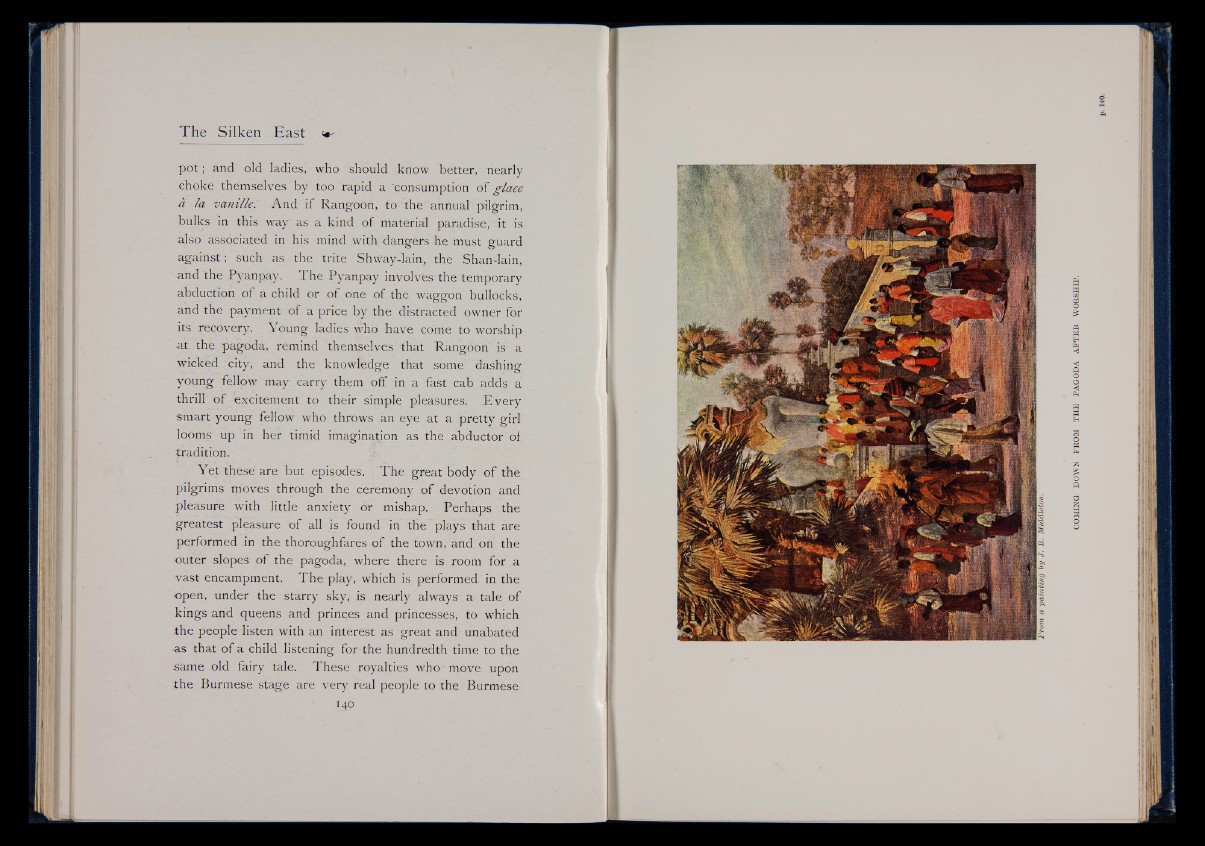
pot; and old ladies, who should know better, nearly
choke themselves by too rapid a consumption of glace
a la vanille. And if Rangoon, to the annual pilgrim,
bulk's in this way as a kind of material paradise, it is
also associated in his mind with dangers he must guard
against; such as the trite Shway-lain, the Shan-lain,
and the Pyanpay. The Pyanpay involves the temporary
abduction of a child or of one of the waOg gOo n bullocks,'
and the payment of a price by the distracted owner for
its recovery. Young ladies who have come to worship
at the pagoda, remind themselves that Rangoon is a
wicked city, and the knowledge that some dashing
young fellow may carry them off in a fast cab adds a
thrill of excitement to their simple pleasures. Every
smart young fellow who throws an eye at a pretty girl
looms up in her timid imagination as the abductor of
tradition.
Yet these are but episodes. The great body of the
pilgrims moves through the ceremony of devotion and
pleasure with little anxiety or mishap. Perhaps the
greatest pleasure of all is found in the plays that are
performed in the thoroughfares of the town, and on the
outer slopes of the pagoda, where there is room for a
vast encampment. The play, which is performed in the
open, under the starry sky, is nearly always a tale of
kings and queens and princes and princesses, to which
the people listen with an interest as great and unabated
-as that of a child listening for the hundredth time to the
same old fairy tale. These royalties who move upon
the Burmese stage are very real people to the Burmese
140